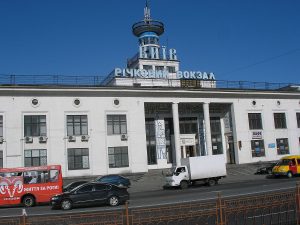
On Friday, April 3, the Ukrainian airline company will carry out six special flights to evacuate Ukrainians home, head of the Ukrainian Hospitality Industry Association Oleksandr Liyev told Interfax-Ukraine.
“There will be six special flights to Ukraine, and all passengers will already have a paid voucher for checking-in into a hotel at EUR 100 for 14 days … The start of ticket sales is to take place tomorrow. Now there is a selection of hotels and resorts for settlement,” said Liyev, without specifying the name of the carrier.
According to the Interfax-Ukraine agency, SkyUp plans to carry out special flights.
“The carrier is the Ukrainian company SkyUp,” a market source told the agency. At the same time, the SkyUp company informed the agency that “they do not know anything” about these special flights.
Responding to a request from the Interfax-Ukraine agency, UIA noted that it “does not plan” to carry out these special flights.
According to the Cabinet of Ministers’ Decree No. 241 of March 29, the regional and Kyiv city state administrations are responsible for ensuring the arrangement of specialized institutions for observation, transportation of persons who need observation and medical supervision to them.

JSC Kyiv River Port increased its net profit by 5.34 times in 2019 compared to 2018, to UAH 37.989 million.
This data is contained on the agenda of a meeting of shareholders scheduled for April 28, the materials of which are released in the information disclosure system of the National Securities and Stock Market Commission.
Net worth of the company is UAH 37.299 million and charter capital is UAH 17.25 million.
Total receivables increased by 34.1%, to UAH 33.353 million for the year.
The company’s assets as of December 31, 2019 increased by 26.4%, to UAH 106.566 million (UAH 84.328 million in 2018).
Kyiv River Port has more than 1,500 meters of cargo berths equipped with modern handling facilities. The port is equipped with hydraulic structures, special devices for parking, handling and navigational services of the fleet, coastal facilities, repair shops.

Ukraine’s Foreign Minister Dmytor Kuleba has held a video conversation with Chinese Ambassador to Ukraine Fan Xianrong, during which he thanked the PRC for the party of humanitarian aid that will arrive in Ukraine on Wednesday, the press service of the Foreign Ministry has said.
“Kuleba expressed gratitude to China for helping Ukraine in the fight against the COVID-19 pandemic and the humanitarian aid party, which will arrive in Ukraine on April 1. It will include PCR tests, remote thermometers, medical glasses and other personal protective equipment for medical personnel,” the message said.
The parties also agreed to continue cooperation in this area. In particular, Xianrong, at the request of Kuleba, confirmed the possibility of facilitating the centralized delivery to Ukraine of the assistance that Chinese cities collected for Ukrainian twin cities.
In addition, with the aim of developing a strategic partnership between Ukraine and China tomorrow, April 1, Kuleba and Wang Yi will hold the first telephone conversation between the foreign ministers of the two countries.
Among other things, the parties discussed trade and investment between the countries, in particular, promising projects that could soon be implemented in Ukraine with the participation of the Chinese side.
“Supporting Ukrainian exporters is my priority. According to the results of 2019, China has become the main trading partner for Ukraine. The trade turnover between our countries reached a record $12.8 billion. This year we must not only maintain, but also develop this success by balancing the structure of trade,” Kuleba said.

SkyUp Airlines (Kyiv), the Ukrainian airline, brought home almost 19,000 Ukrainians with special flights, more than 2,000 Ukrainians and foreigners were embarked to their countries of residence, co-owner of the company Oleksandr Alba said on his Facebook page on Tuesday.
According to him, for this purpose SkyUp aircrafts made over 100 special flights to 30 countries within nine days.
“We know that our fellow citizens still remain abroad and are ready to provide assistance for their return when the opportunity arises for this,” he said.
As reported, SkyUp due to the decision of the Cabinet of Ministers canceled all scheduled flights until April 24.
SkyUp LLC was registered in Kyiv in June 2016. The founder is ACS-Ukraine LLC of Tetiana and Yuriy Alba, who also own the JoinUp! tour operator.

Nova Poshta group of companies has paid for sewing 2,000 special protective suits for doctors from Chernivtsi, the company said on Tuesday.
In the near future, a purchase order worth UAH 1 million will be completed and personal protective equipment delivered to the city’s hospitals.
According to the statement, assistance to Chernivtsi was provided under the decision adopted by the company on March 15 to allocate UAH 25 million for the purchase of medical equipment, supplies, medicines and personal protective means for medical institutions in Ukraine.
“In the near future, Nova Poshta will supply several more artificial lung ventilators to medical institutions. We continue to urge representatives of business, volunteers, and public organizations to join the honorable thing, to contribute and provide the country’s hospitals with everything necessary by joint efforts,” co-founder of the company Inna Popereshniuk said.
She also said that today the health and lives of millions of Ukrainians depend on the responsible social position of business as well.
HOSPITALS, INVESTS, NOVA POSHTA, PROTECTIVE SUITS, PURCHASING

The Preply international marketplace for finding tutors has raised a new $10 million round of funding. London-based Hoxton Ventures acted as a lead investor in the round.
According to a press release of the company, Point Nine Capital, All Iron Ventures, The Family, EduCapital, and Diligent Capital also participated in the round along with angel investors: Arthur Kosten from Booking.com; Gary Swart, ex-CEO of Upwork; David Helgason, founder of Unity Technologies; and Danielle Hoffer, founder of Couchsurfing.
The funding will help the company strengthen its position in North America, France, Germany, Spain, Italy, and the UK. Besides, Preply will open a branch in the United States.
In addition, Preply also expands the platform. The startup plans to launch new tools for its tutors and to develop a mobile application for Android and iOS.
“The new funding allows us to bring a more in-depth, immersive and convenient experience to both tutors and learners all over the world. Today, we are laser focused on language learning, but ultimately, I envision a future where anyone can learn anything using Preply,” CEO of Preply Kirill Bigai said in a statement.
The startup was founded in 2012 by Bigai, Serge Lukianov (Head of Product Design) and Dmytro Voloshyn (CTO) with offices in Kyiv and Berlin. The company currently employs 125 staff.